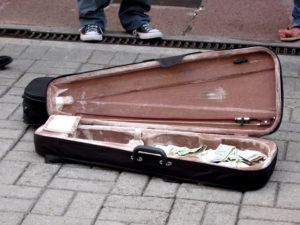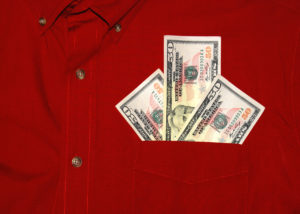Slush Funds Can Stabilize Your Budget
Can you stay on budget with a slush fund? This idea didn’t originate with me. In fact, I’m not sure that I view it very favorably. I prefer to budget my money to the penny. That way I know exactly
where all of my money is going. (I use sinking funds, not a slush fund. You will know why when you finish reading this article.) Can you stay on budget with a slush fund? The definition of a slush fund, according to Wikipedia is a fund or account that is not properly accounted for and is used for illicit acts. It sounds a little like a cheat or maybe a little dishonest to me. That’s just my opinion.
The idea of having a budget is to know where your money going. If you are using a slush fund, then you are not using a budget. Instead, you have a budget failure by design. The next question is, why have a budget?
Can You Stay On Budget With A Slush Fund?
If I have a budget failure, I go to my emergency savings to fill the lack. (It may not even be a full-blown emergency. That implies something unexpected. It might be something I’m already preparing—saving—for that has increased in urgency and needs to be taken care of now.) Of course, you know that before I tap those funds, I’ll explore other approaches to the situation to see if I might be able to defer the need for them.
I do understand that life happens. It happens to all of us from time to time. When I take money from my emergency fund, I’m very careful to keep track of how I’m using it. This allows me to review my records and see if I’m developing a negative trend (bad habits). If I have to take money from my emergency fund too often for the same type of event, I’ll know I need to rework my budget (or exercise more self-control.)
How Slush Funds Can Stabilize Your Budget
Some people want to have on hand a stash of cash they can go to that will cover unexpected expenses. This is their slush fund. It’s not wrong to have some money that can be used to keep the financial aspect of your life from becoming chaotic, but that’s what the emergency accounts are for. The practice of having money lying around increases the probability of your attitude towards it becoming very casual. This could lead to dependency and almost certainly a lack of accountability for it.
Difference
I want to clarify the difference between an emergency savings account and a slush fund. (And, yes. Emergency savings can be called an “Emergency Fund,” but right now I want you to view the concepts of “fund” and “savings” separately.)
Your budget should require that you make regular deposits to your emergency savings. That money should be somewhere secure (like a bank account) but fairly easy to access. You don’t want it where it is constantly tempting you to make use of it.
Slush Fund Definition
At this point the difference may seem to be an issue of semantics, but let’s take a look at the definition of “slush fund” from an online Merriam-Webster dictionary:
1: A fund from the sale of refuse to obtain small luxuries or pleasures for a warship’s crew
2: A fund for bribing public officials or carrying on corruptive propaganda
3: An unregulated fund, often used for illicit purposes.
None of these definitions have great connotations.
Now, I’m not saying your slush fund is underhanded, illicit, or illegal, but the origins of the term does tend to support my feeling that there may be a tendency to abuse its purpose. If all you have to do “to make things right” is grab some money out of an envelope or a fake can of shaving cream, it’s highly unlikely you’ll take the time to annotate the how much or the when or why at the time…A couple of weeks later it will be unlikely that you’ll remember much about the incident.
Purpose
Here’s where the advantage of budgeting comes in. The purpose of a budget is to control spending and to know where your money is going. Budgeting requires recordkeeping and review, and as I do these procedures, I can see where I need to make adjustments and eliminate waste.
A Pitfall
Some people fall into the trap of using a slush fund to finance recurring expenses. Since these are periodically repeated events that can be anticipated, they should not be treated as emergencies. Payment for these should be included in a budget.
Conclusion
Some people use a “slush fund” to bail themselves out of financial trouble. Because I want to track every penny, I don’t. I want to know where my money is going. I budget.
If we don’t account for where, when, and how we spend our money, it’s easy to become reckless or wasteful–and not even be aware we’re doing it. That’s the real problem with a slush fund—which tends to be an unregulated, easily accessible stash.
As I just said, I don’t have a slush fund. I do have a regularly funded reserve for emergencies. A budgeted “Emergency Fund” helps keep me honest and focused on the true state of my finances.


